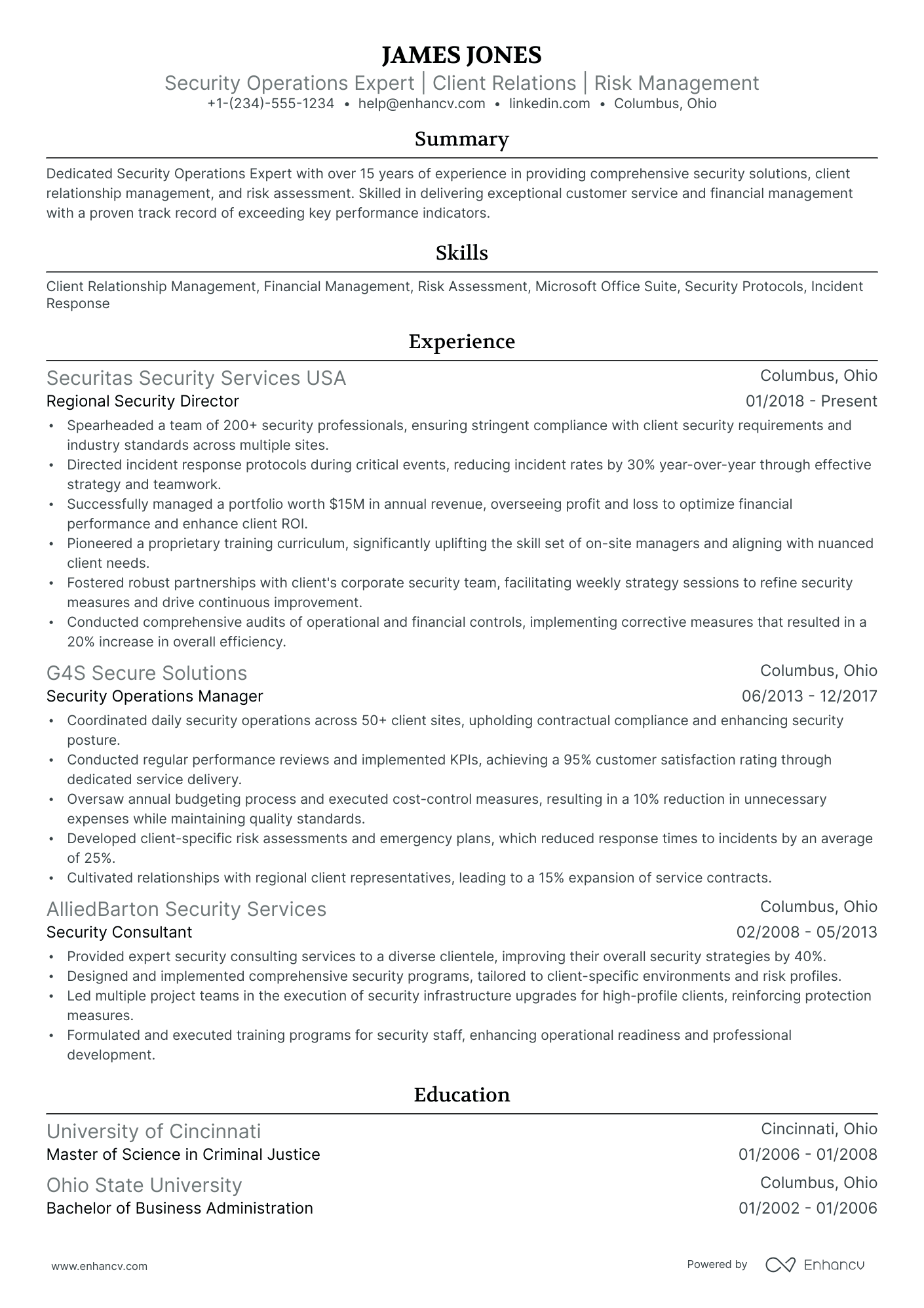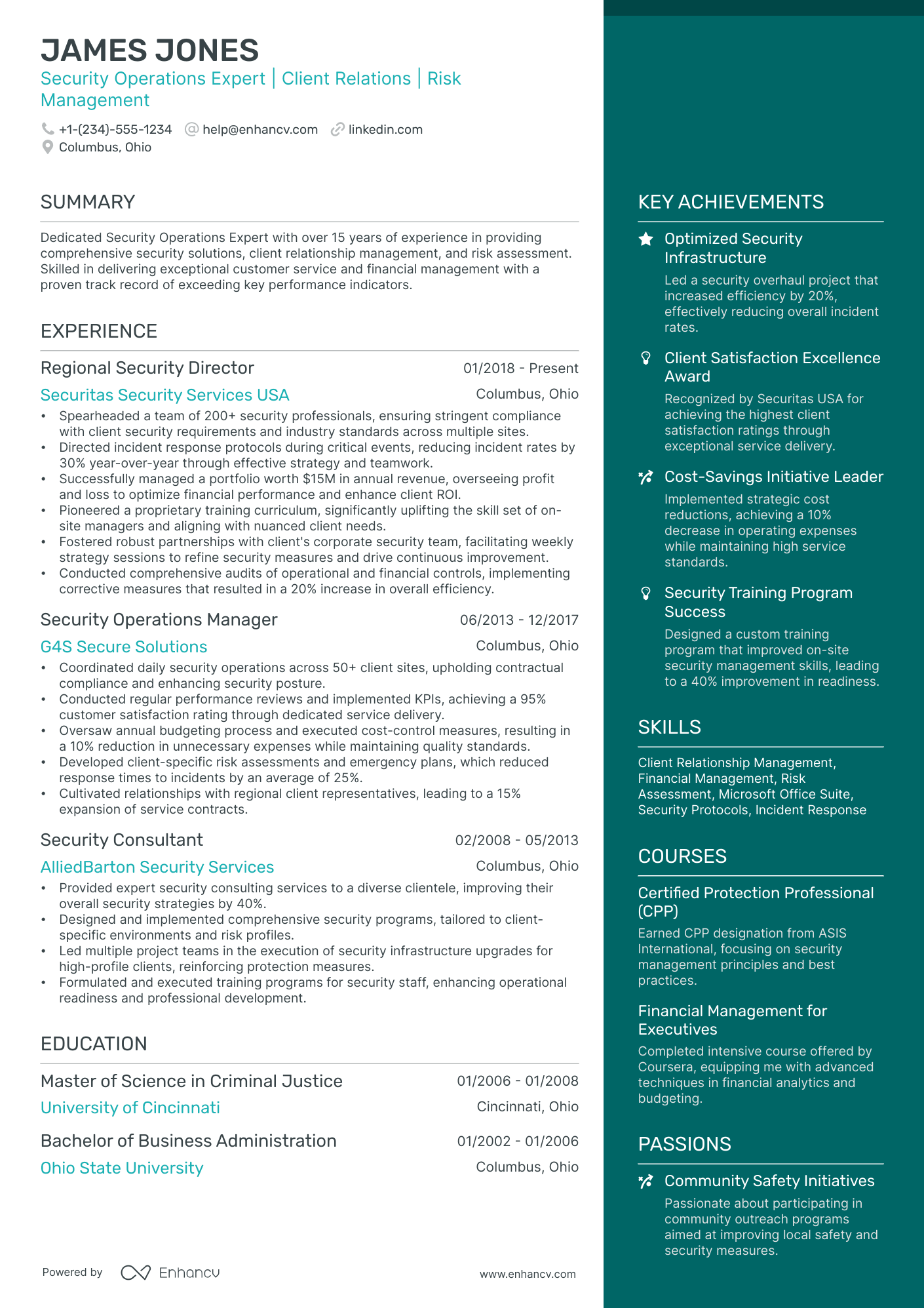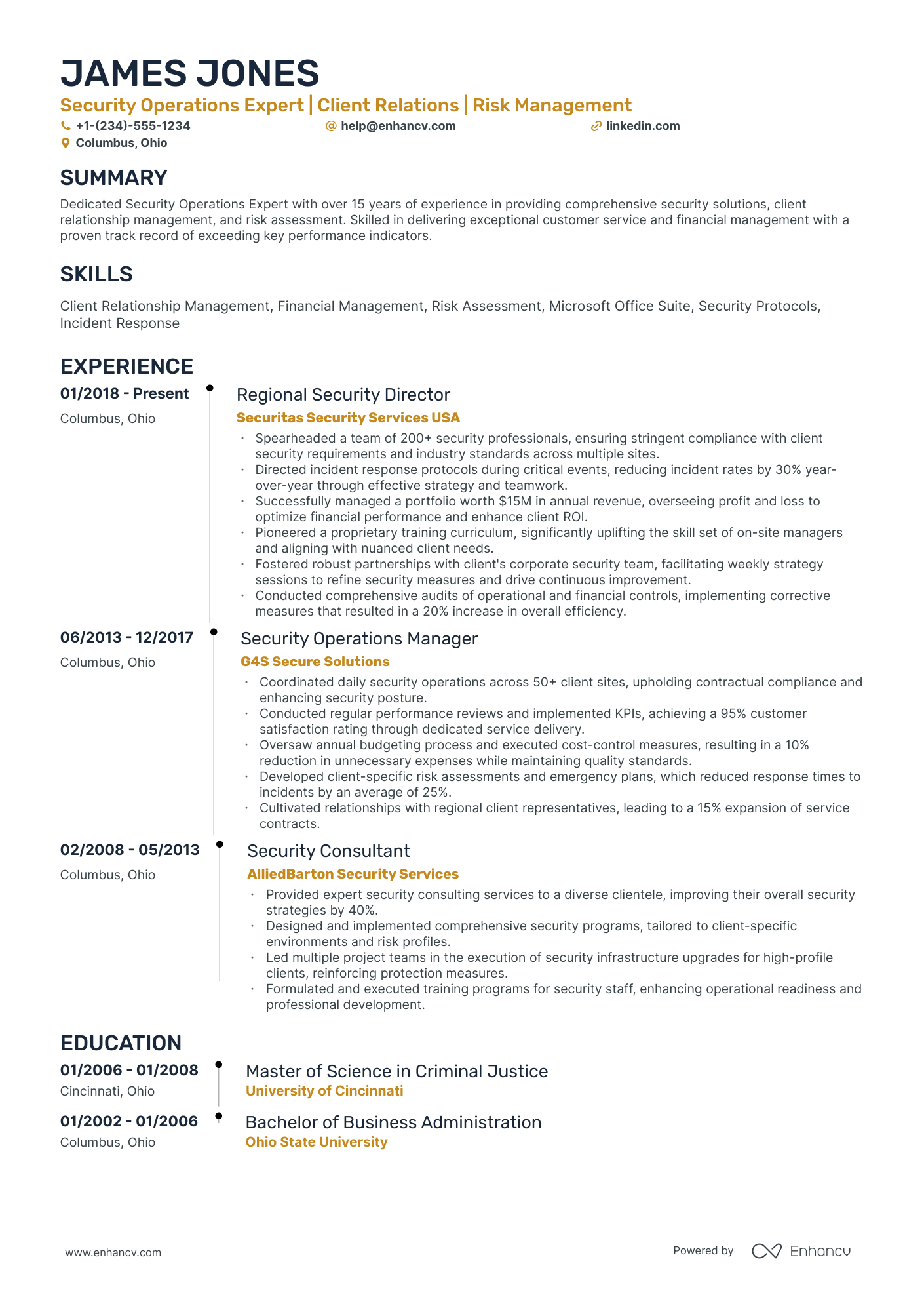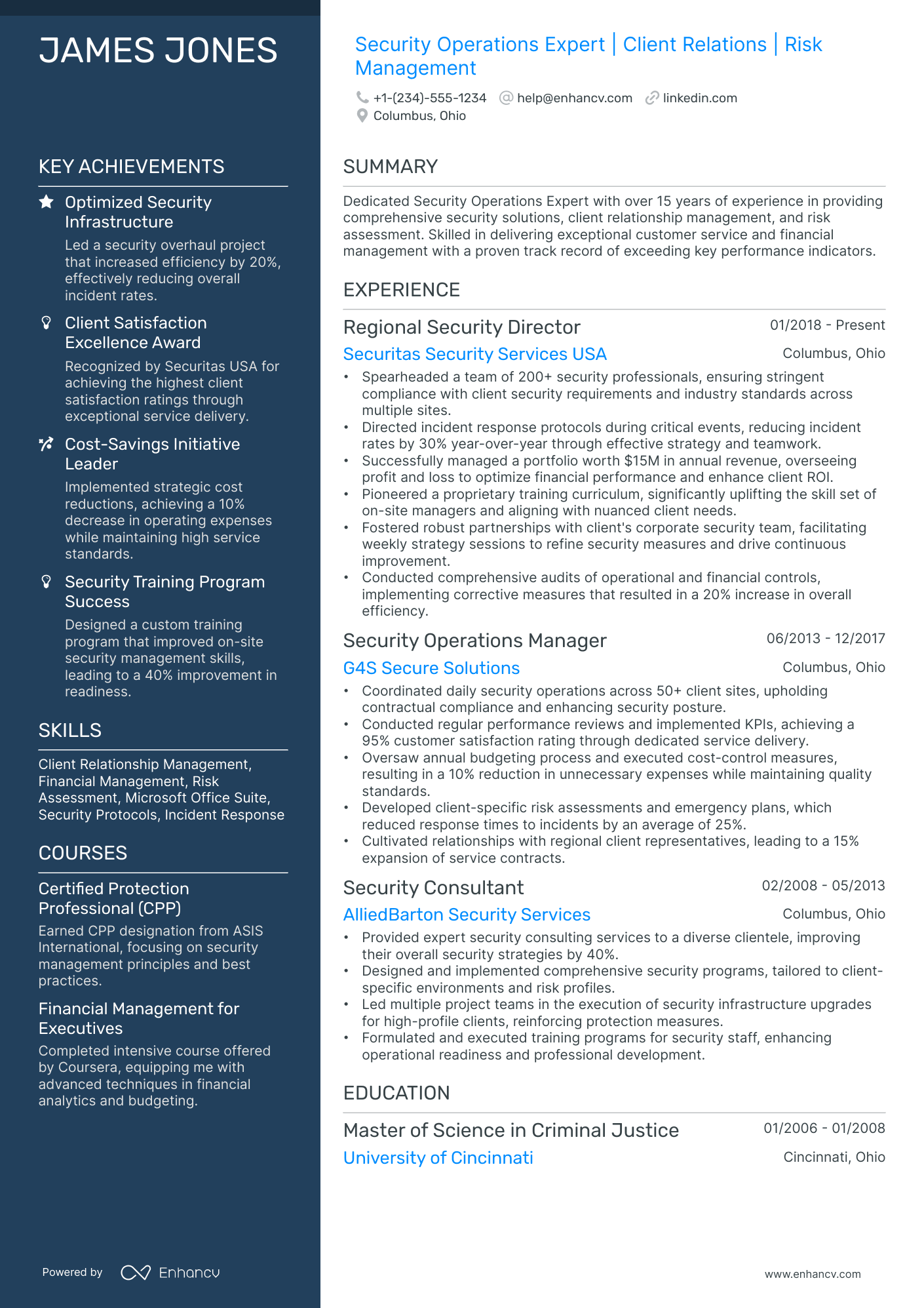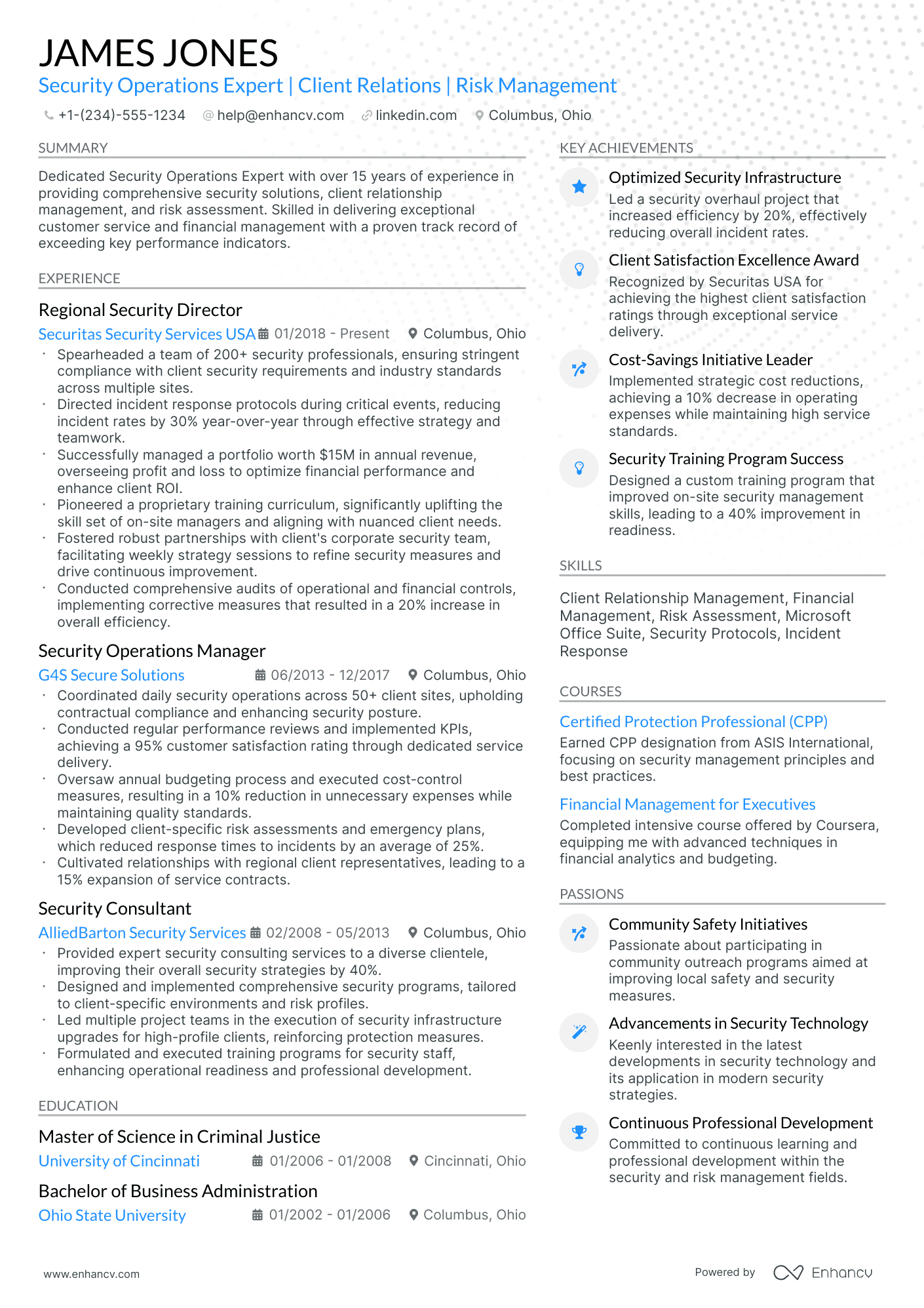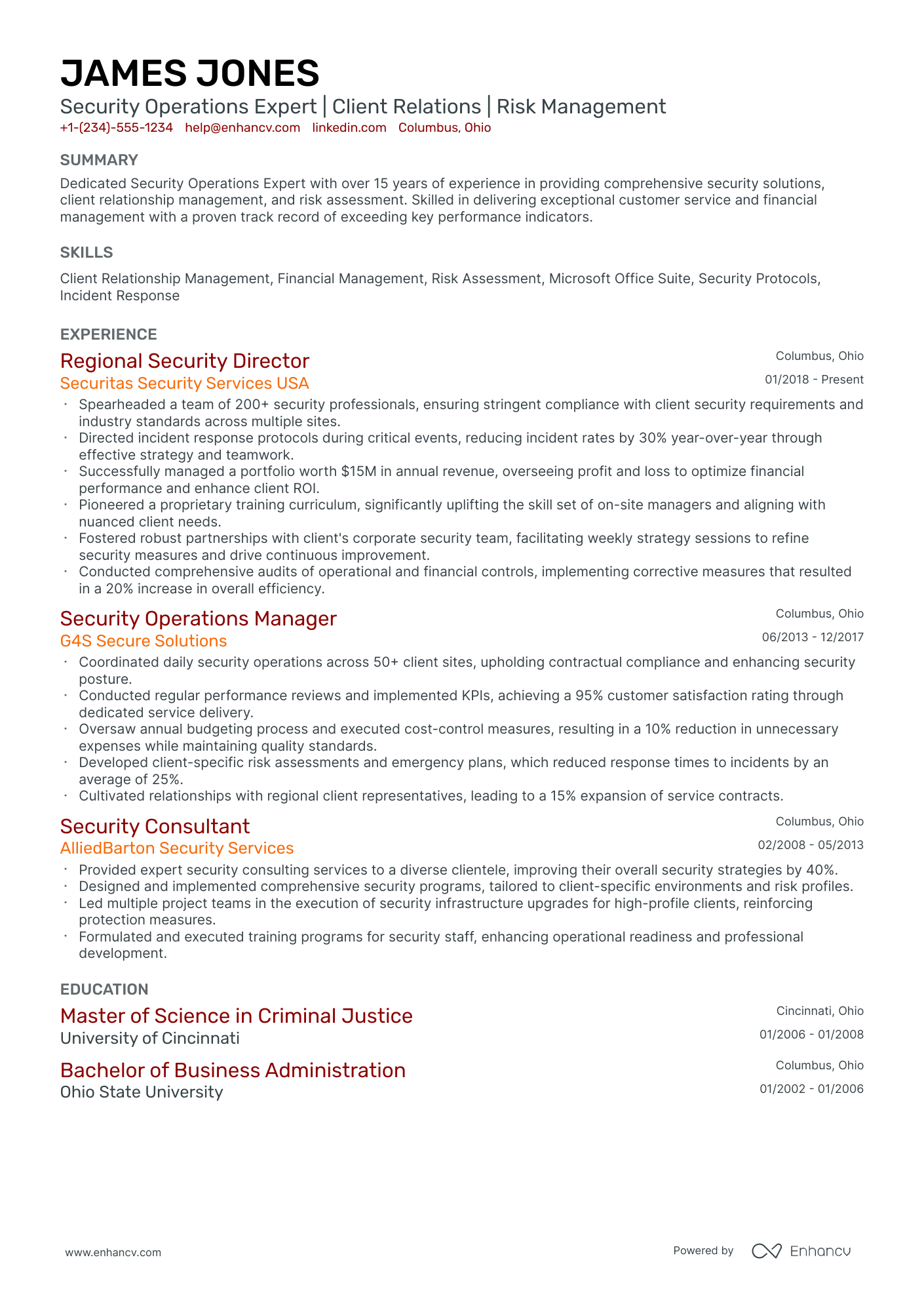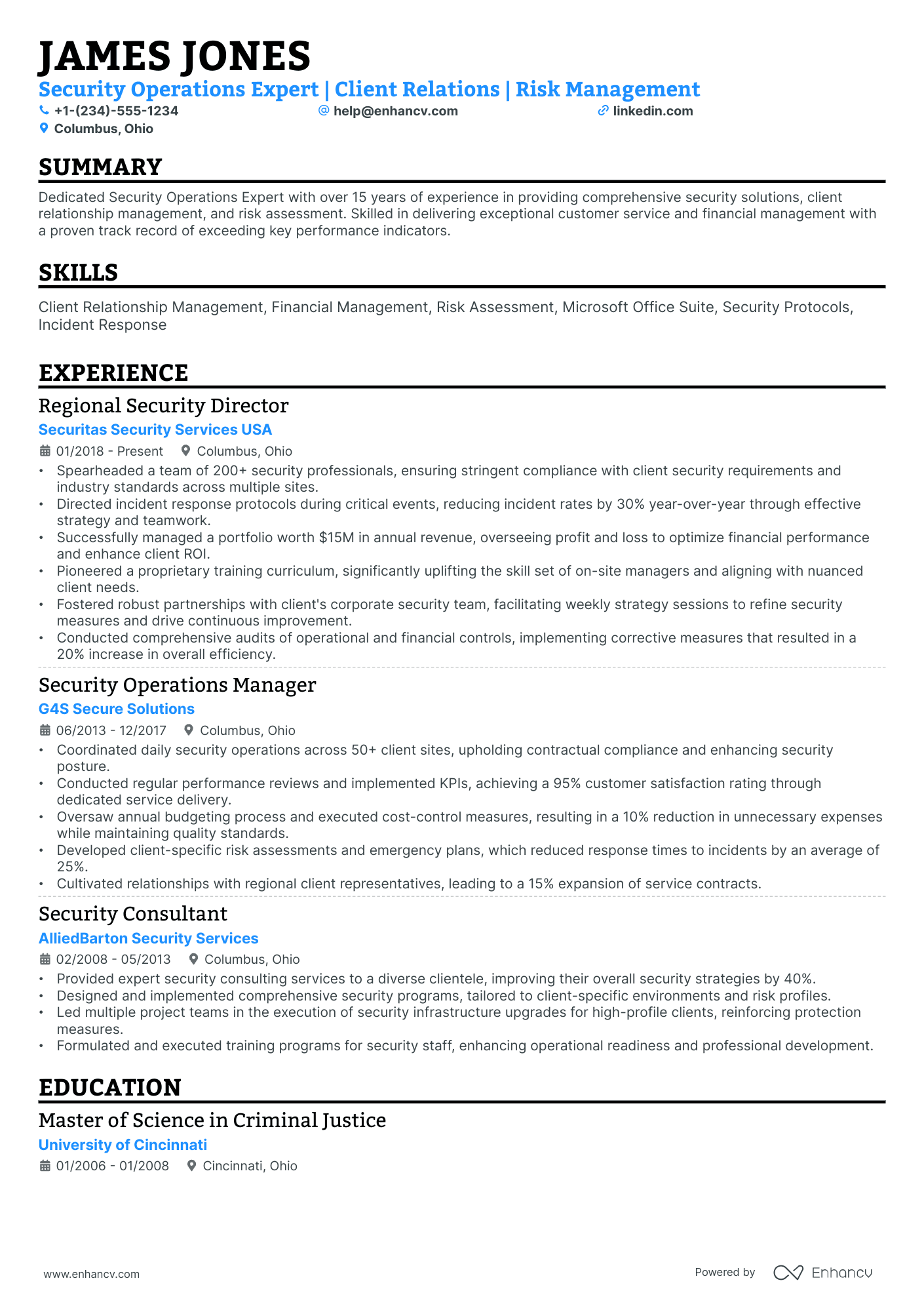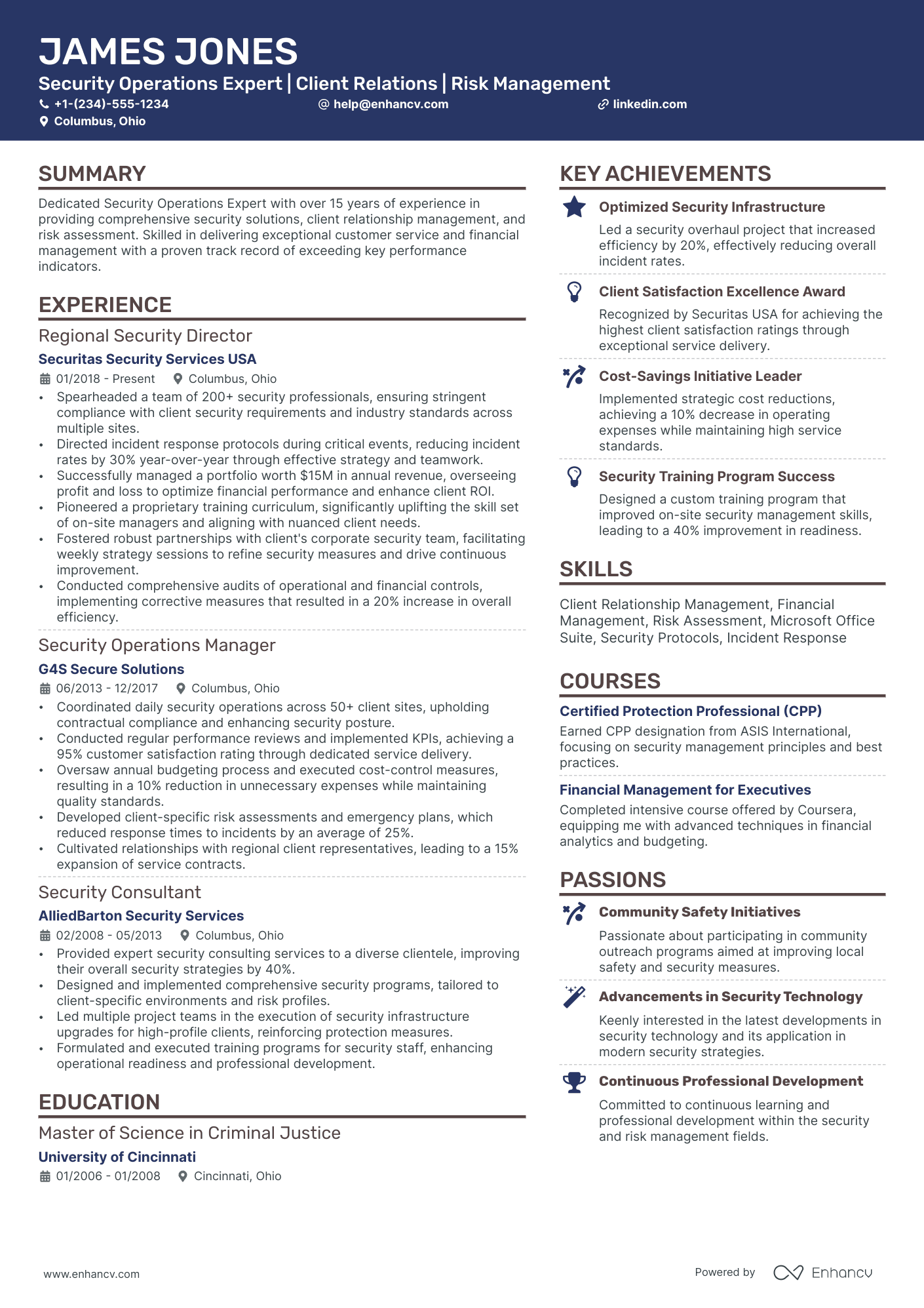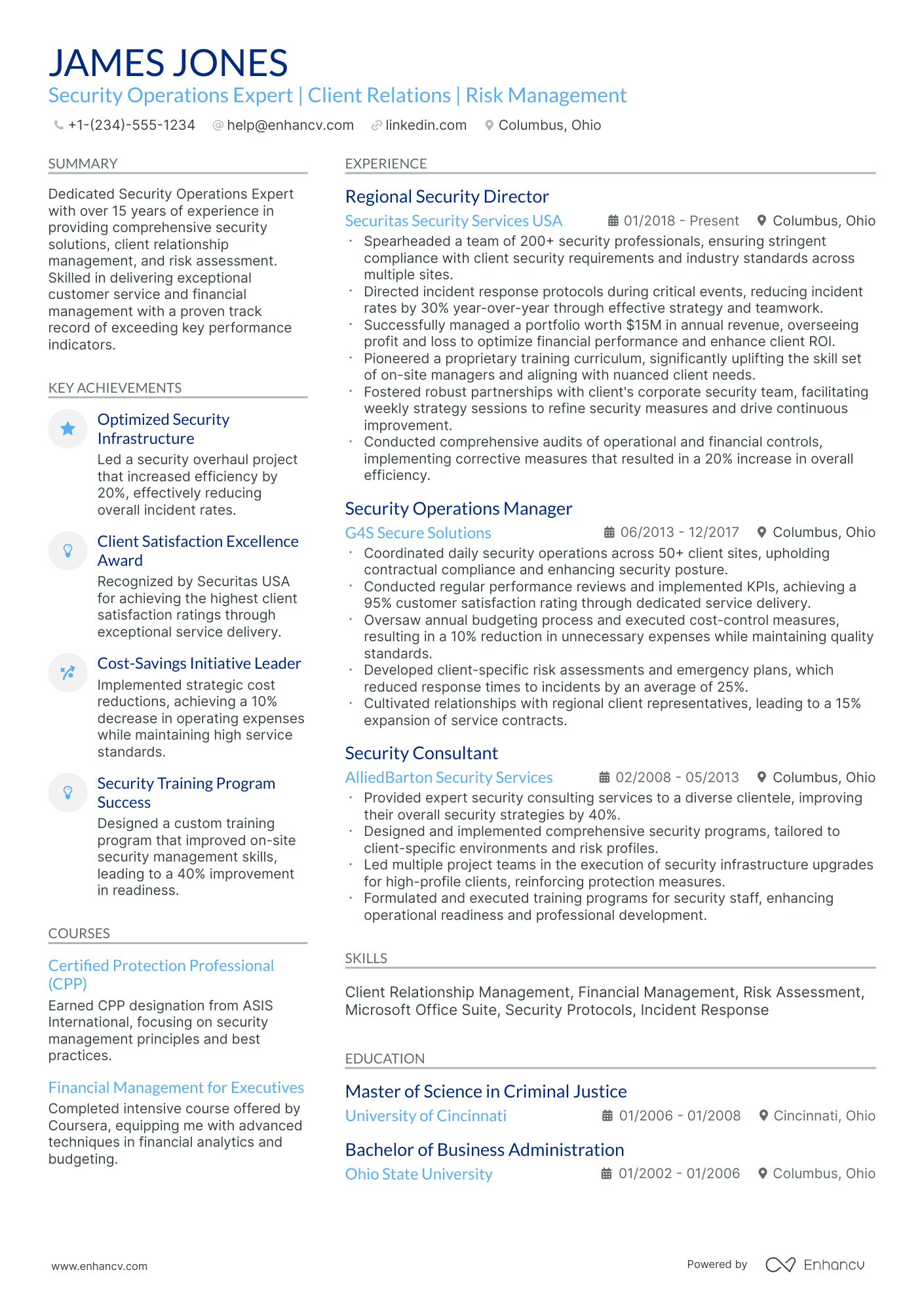Many portfolio manager resumes fail because they list holdings and tools but don't explain investment decisions, risk controls, or performance drivers. In today's portfolio manager resume screening, ATS filters and quick recruiter scans favor clear, comparable results in a crowded market. Knowing how to make your resume stand out is essential when every candidate claims strong returns.
A strong resume shows what you delivered and how it changed outcomes. Highlight alpha versus benchmark, assets under management, tracking error, drawdown reduction, risk-adjusted returns, client retention, mandate wins, and process improvements that shortened rebalances and improved compliance quality.
Key takeaways
- Quantify portfolio performance with metrics like alpha, Sharpe ratio, drawdown, and AUM growth in every experience bullet.
- Use reverse-chronological format to show progressive responsibility across increasingly complex investment mandates.
- Tailor experience bullets to mirror each job posting's asset classes, tools, and risk frameworks.
- Anchor hard and soft skills in measurable outcomes rather than listing them in isolation.
- Lead with a three- to four-line summary stating your mandate focus, tools, and top result.
- Entry-level candidates should highlight student funds, model portfolios, and CFA progress with quantified returns.
- Use Enhancv to structure and refine your resume so every section aligns with portfolio manager hiring expectations.
Job market snapshot for portfolio managers
We analyzed 1,095 recent portfolio manager job ads across major US job boards. These numbers help you understand experience requirements, career growth patterns, employer expectations at a glance.
What level of experience employers are looking for portfolio managers
| Years of Experience | Percentage found in job ads |
|---|---|
| 1–2 years | 3.7% (40) |
| 3–4 years | 8.6% (94) |
| 5–6 years | 17.5% (192) |
| 7–8 years | 10.6% (116) |
| 9–10 years | 4.5% (49) |
| 10+ years | 6.3% (69) |
| Not specified | 53.0% (580) |
Portfolio manager ads by area of specialization (industry)
| Industry (Area) | Percentage found in job ads |
|---|---|
| Finance & Banking | 87.5% (958) |
| Healthcare | 6.0% (66) |
| Education | 1.9% (21) |
| Real Estate & Construction | 1.6% (18) |
| Government | 0.9% (10) |
| Manufacturing | 0.9% (10) |
Top companies hiring portfolio managers
| Company | Percentage found in job ads |
|---|---|
| Cadence Bank | 7.0% (77) |
| US Bank | 6.0% (66) |
| Huntington Bancshares Inc | 5.8% (63) |
| Wells Fargo | 4.7% (51) |
| WesBanco | 2.5% (27) |
| PNC Financial Services Group, Inc. | 1.9% (21) |
| Allied Universal Security | 1.7% (19) |
| BMO (Bank of Montreal) | 1.7% (19) |
| Fifth Third Bank | 1.7% (19) |
| Standard Chartered | 1.5% (16) |
Role overview stats
These tables show the most common responsibilities and employment types for portfolio manager roles. Use them to align your resume with what employers expect and to understand how the role is structured across the market.
Day-to-day activities and top responsibilities for a portfolio manager
| Responsibility | Percentage found in job ads |
|---|---|
| Portfolio management | 22.7% (249) |
| Microsoft office | 15.1% (165) |
| Excel | 13.5% (148) |
| Credit analysis | 13.0% (142) |
| Financial analysis | 10.9% (119) |
| Project management | 10.0% (109) |
| Financial modeling | 9.5% (104) |
| Microsoft excel | 8.7% (95) |
| Microsoft word | 7.3% (80) |
| Underwriting | 6.8% (75) |
| Word | 6.8% (74) |
| Cash flow analysis | 6.6% (72) |
Type of employment (remote vs on-site vs hybrid)
| Employment type | Percentage found in job ads |
|---|---|
| On-site | 69.7% (763) |
| Hybrid | 26.5% (290) |
| Remote | 3.8% (42) |
How to format a portfolio manager resume
Recruiters evaluating portfolio manager resumes prioritize evidence of progressive responsibility over increasingly complex portfolios, risk-adjusted performance, and strategic decision-making authority. The resume format you choose determines how quickly a hiring manager can trace that trajectory—burying it behind skills lists or thematic groupings forces them to guess rather than verify.
I have significant experience in this role—which format should I use?
Use a reverse-chronological format—it's the only structure that clearly communicates the scope and progression of your portfolio management career. Do:
- Lead each role entry with the portfolio size, asset classes, and investment mandate you owned, making your scope of responsibility immediately visible.
- Highlight domain-specific expertise such as Bloomberg Terminal, risk analytics platforms, factor modeling, and regulatory frameworks relevant to each position.
- Quantify outcomes in terms of alpha generation, Sharpe ratios, drawdown management, or AUM growth to show direct business impact.
Why hybrid and functional resumes don't work for senior roles
Hybrid formats fragment your leadership narrative by pulling key accomplishments out of their institutional context, making it difficult for reviewers to assess how your decision-making authority and portfolio accountability evolved across roles. Functional resumes are worse—they eliminate the timeline entirely, obscuring career progression and diluting the weight of sustained performance in high-stakes investment environments. Avoid both formats entirely if you have five or more years of portfolio management experience, as they signal gaps or stagnation to hiring committees that expect a clear, verifiable record of growing responsibility.
- A functional resume may be acceptable only if you're transitioning into portfolio management from a closely related role (such as sell-side research or risk management), have a gap of two or more years you need to contextualize, or lack direct PM titles despite performing equivalent work—but even then, every listed skill must be tied to a specific project, portfolio outcome, or measurable result.
With your format established, the next step is filling it with the right sections to present your qualifications effectively.
What sections should go on a portfolio manager resume
Recruiters expect you to present a clear record of portfolio performance, risk management, and client outcomes. Understanding which resume sections to include ensures hiring managers find what they need quickly.
Use this structure for maximum clarity:
- Header
- Summary
- Experience
- Skills
- Projects
- Education
- Certifications
- Optional sections: Awards, Publications, Languages
Your experience bullets should emphasize measurable impact, performance versus benchmarks, assets under management scope, risk-adjusted results, and client retention or growth outcomes.
Is your resume good enough?
Drop your resume here or choose a file. PDF & DOCX only. Max 2MB file size.
Now that you’ve organized the key resume components, the next step is to write your portfolio manager resume experience so it supports each section with relevant, role-specific impact.
How to write your portfolio manager resume experience
The experience section is where you prove you can manage investment portfolios, allocate capital effectively, and generate returns—not just describe your daily responsibilities. Hiring managers prioritize demonstrated impact over descriptive task lists, so every bullet should highlight shipped or delivered work, role-relevant tools or methods, and measurable outcomes. Building a targeted resume ensures each entry speaks directly to the mandate you're pursuing.
Each entry should include:
- Job title
- Company and location (or remote)
- Dates of employment (month and year)
Three to five concise bullet points showing what you owned, how you executed, and what outcomes you delivered:
- Ownership scope: the portfolios, asset classes, investment strategies, client accounts, or analyst teams you were directly accountable for as a portfolio manager.
- Execution approach: the analytical frameworks, risk models, trading platforms, research methodologies, or asset allocation strategies you used to make investment decisions and deliver work.
- Value improved: changes to portfolio performance, risk-adjusted returns, downside protection, client retention, cost efficiency, or regulatory compliance relevant to portfolio management.
- Collaboration context: how you worked with research analysts, risk teams, compliance officers, client relationship managers, or external counterparties to inform investment decisions and execute strategy.
- Impact delivered: outcomes expressed through portfolio growth, alpha generation, asset gathering, risk reduction, or client satisfaction rather than routine activity.
Experience bullet formula
A portfolio manager experience example
✅ Right example - modern, quantified, specific.
Portfolio Manager, Multi-Asset Strategies
NorthBridge Asset Management | Boston, MA
2021–Present
Mid-sized registered investment advisor managing $8B in taxable and tax-exempt portfolios for high-net-worth and institutional clients.
- Rebalanced $1.6B across multi-asset portfolios using Bloomberg PORT, FactSet, and Excel VBA, cutting tracking error by 18% while maintaining target risk bands and liquidity constraints.
- Implemented factor-based risk monitoring in MSCI Barra and Python, reducing unintended sector and duration exposures by 22% and improving downside capture by 11% during volatile quarters.
- Led quarterly investment committee reviews with research analysts and client advisors, delivering IPS-aligned allocation changes that increased net-of-fee performance by 90 basis points versus benchmarks.
- Streamlined trade workflow with Charles River IMS (investment management system) and Salesforce integrations, reducing trade-to-settlement exceptions by 35% and saving six hours per week across operations and trading.
- Partnered with compliance and legal to enhance ESG and restricted-list screening in the applicant tracking system (applicant tracking system) and internal OMS controls, lowering policy breaches to zero across twelve consecutive audits.
Now that you've seen how a strong experience section comes together, let's look at how to adjust yours to match a specific portfolio manager job posting.
How to tailor your portfolio manager resume experience
Recruiters evaluate your portfolio manager resume through both applicant tracking systems and human review, so tailoring your resume to the job description is critical. Tailoring your experience section ensures your qualifications mirror exactly what the hiring team is looking for.
Ways to tailor your portfolio manager experience:
- Match portfolio management platforms and analytics tools named in the posting.
- Mirror the asset classes or investment strategies the role specifies.
- Use the same terminology for risk frameworks or valuation methodologies listed.
- Reflect specific KPIs like alpha generation or Sharpe ratio the employer references.
- Include sector or industry expertise when the job description calls for it.
- Emphasize regulatory compliance and fiduciary standards if the posting highlights them.
- Highlight client relationship management or stakeholder reporting workflows mentioned.
- Align your rebalancing or allocation process language with the job requirements.
Tailoring means connecting your real accomplishments to the role's stated needs rather than forcing unrelated keywords into your experience.
Resume tailoring examples for portfolio manager
| Job description excerpt | Untailored | Tailored |
|---|---|---|
| "Manage multi-asset portfolios across equities, fixed income, and alternatives, targeting risk-adjusted returns using Bloomberg PORT and FactSet." | Managed investment portfolios and conducted financial analysis for clients. | Managed $850M in multi-asset portfolios spanning equities, fixed income, and alternatives, leveraging Bloomberg PORT and FactSet to optimize risk-adjusted returns and outperform benchmarks by 3.2% annually. |
| "Conduct sector allocation and rebalancing strategies aligned with the firm's ESG integration framework and GIPS compliance standards." | Helped with portfolio rebalancing and followed company investment guidelines. | Executed quarterly sector allocation and rebalancing strategies for 12 institutional portfolios, ensuring full alignment with the firm's ESG integration framework and maintaining GIPS compliance across all composite reporting. |
| "Collaborate with risk management and research teams to stress-test portfolios under macroeconomic scenarios using Monte Carlo simulations." | Worked with other teams to review portfolio risk and prepare reports. | Partnered with risk management and equity research teams to stress-test $1.2B in AUM under 15 macroeconomic scenarios, using Monte Carlo simulations to identify tail-risk exposures and reduce portfolio drawdown by 18%. |
Once you’ve aligned your experience with the role’s priorities, the next step is to quantify your portfolio manager achievements so hiring managers can see the impact behind those choices.
How to quantify your portfolio manager achievements
Quantifying your achievements proves you drove returns and controlled risk, not just managed tasks. Focus on performance versus benchmark, volatility and drawdowns, tracking error, cost savings, and revenue tied to assets under management growth.
Quantifying examples for portfolio manager
| Metric | Example |
|---|---|
| Relative performance | "Outperformed the Bloomberg U.S. Aggregate benchmark by 85 basis points net of fees over twelve months across a $620M core bond portfolio." |
| Risk reduction | "Cut maximum drawdown from 9.4% to 6.1% by tightening position limits and adding downside hedges using S&P 500 put spreads." |
| Cost efficiency | "Reduced annual trading costs by $410K by shifting 35% of flow to low-touch execution and enforcing broker scorecards in Bloomberg AIM." |
| Compliance accuracy | "Achieved zero audit findings across four SEC reviews by automating pre-trade compliance checks and reconciling restricted lists weekly." |
| Revenue growth | "Grew assets under management by $180M in nine months by launching a tax-aware model portfolio and supporting ten advisor roadshows." |
Turn vague job duties into measurable, recruiter-ready resume bullets in seconds with Enhancv's Bullet Point Generator.
Once you've crafted strong bullet points that highlight your achievements, the next step is ensuring your resume also showcases the right mix of hard and soft skills employers expect from a portfolio manager.
How to list your hard and soft skills on a portfolio manager resume
Your skills section shows how you allocate capital, manage risk, and deliver performance, and recruiters and an ATS (applicant tracking system) scan them to match you to the mandate—aim for a hard-skill-heavy list supported by role-specific soft skills. portfolio manager roles require a blend of:
- Product strategy and discovery skills.
- Data, analytics, and experimentation skills.
- Delivery, execution, and go-to-market discipline.
- Soft skills.
Your skills section should be:
- Scannable (bullet-style grouping).
- Relevant to the job post.
- Backed by proof in experience bullets.
- Updated with current tools.
Place your skills section:
- Above experience if you're junior or switching careers.
- Below experience if you're mid/senior with strong achievements.
Hard skills
- Portfolio construction, rebalancing
- Asset allocation, factor models
- Risk management, VaR, stress testing
- Performance attribution, GIPS reporting
- Equity research, financial modeling
- Fixed income analytics, duration, convexity
- Derivatives, options strategies, hedging
- Bloomberg Terminal, FactSet, Morningstar Direct
- Python, pandas, NumPy
- SQL, data warehousing
- Excel, VBA, Power Query
- Order management systems, trade execution
Soft skills
- Investment thesis development
- Conviction-based decision-making
- Risk-aware trade-offs
- Clear client storytelling
- Stakeholder alignment across teams
- Cross-functional collaboration with trading
- Challenge assumptions with evidence
- Prioritize under uncertainty
- Own outcomes and accountability
- Coach analysts through feedback
- Run efficient investment meetings
- Escalate issues early and clearly
How to show your portfolio manager skills in context
Skills shouldn't live only in a bulleted list on your resume. Explore examples of resume skills shown in context to see how top candidates integrate them throughout their documents.
They should be demonstrated in:
- Your summary (high-level professional identity)
- Your experience (proof through outcomes)
Here's what that looks like in practice.
Summary example
Senior portfolio manager with 12 years in institutional equity management. Skilled in Bloomberg Terminal, risk-adjusted return optimization, and client advisory. Grew AUM by 34% over three years while maintaining Sharpe ratios above 1.5.
- Signals senior-level expertise immediately
- Names industry-standard tools directly
- Quantifies portfolio growth with metrics
- Highlights client-facing soft skills
Experience example
Senior Portfolio Manager
Ridgeline Capital Partners | Chicago, IL
June 2018–Present
- Managed $620M multi-asset portfolio using Bloomberg Terminal and FactSet, delivering 11.2% annualized returns over five years.
- Collaborated with risk and compliance teams to restructure sector allocations, reducing portfolio drawdown by 18% during 2022 volatility.
- Led quarterly investment committee presentations for 14 institutional clients, strengthening retention rates to 96%.
- Every bullet includes measurable proof
- Skills surface naturally through real outcomes
After you’ve anchored your portfolio manager strengths in real outcomes and responsibilities, the next step is to apply that same approach to building a portfolio manager resume with no experience.
How do I write a portfolio manager resume with no experience
Even without full-time experience, you can demonstrate readiness through academic projects and early credentials. Our guide on writing a resume without work experience walks you through the full approach. Here are strong options for aspiring portfolio managers:
- Student-managed investment fund performance
- Personal model portfolio track record
- CFA Institute Research Challenge analysis
- Equity research reports with valuation models
- Bloomberg Market Concepts certification projects
- Internship in investment operations support
- Case competitions on asset allocation
- Volunteer endowment or treasury oversight
Focus on:
- Quantified returns versus benchmark
- Repeatable investment process documentation
- Risk metrics and constraints applied
- Tools: Bloomberg, Excel, Python
Resume format tip for entry-level portfolio manager
Use a skills-based hybrid resume format because it highlights investment projects, tools, and results before limited work history. Do:
- Lead with a projects section.
- Quantify performance, risk, and costs.
- Name tools: Bloomberg, Excel, Python.
- Show your process: thesis, sizing, review.
- Add relevant licenses and coursework.
- Built a six-stock model portfolio in Excel and Python, tracked for twelve months, and outperformed the S&P 500 by 2.1% with 0.9 lower beta.
Even without direct experience, your educational background can serve as the foundation of your resume—so presenting it effectively is essential.
How to list your education on a portfolio manager resume
Your education section helps hiring teams confirm you have the foundational knowledge needed for the role. It validates your training in finance, economics, or quantitative analysis.
Include:
- Degree name
- Institution
- Location
- Graduation year
- Relevant coursework (for juniors or entry-level candidates)
- Honors & GPA (if 3.5 or higher)
Skip month and day details—list the graduation year only.
Here's a strong education entry tailored to a portfolio manager resume.
Example education entry
Bachelor of Science in Finance
Stern School of Business, New York University, New York, NY
Graduated 2018
GPA: 3.7/4.0
- Relevant Coursework: Portfolio Theory, Fixed Income Analysis, Derivatives, Quantitative Risk Management, Financial Econometrics
- Honors: Magna Cum Laude, Beta Gamma Sigma Honor Society
How to list your certifications on a portfolio manager resume
Certifications on a resume show a portfolio manager's commitment to learning, proficiency with key tools, and relevance to current industry standards. They also validate specialized knowledge beyond formal education.
Include:
- Certificate name
- Issuing organization
- Year
- Optional: credential ID or URL
- List certifications below education when they're older, broadly relevant, or secondary to your degree for the portfolio manager role.
- List certifications above education when they're recent, highly relevant, or required for the portfolio manager role you target.
Best certifications for your portfolio manager resume
- Chartered Financial Analyst (CFA)
- Financial Risk Manager (FRM)
- Chartered Alternative Investment Analyst (CAIA)
- Certified Investment Management Analyst (CIMA)
- Professional Risk Manager (PRM)
- Bloomberg Market Concepts (BMC)
- Chartered Market Technician (CMT)
Once you’ve placed your credentials where recruiters can find them quickly, focus next on writing your portfolio manager resume summary to tie those qualifications to your value in a few lines.
How to write your portfolio manager resume summary
Your resume summary is the first thing a recruiter reads. A strong one instantly signals you have the experience and results a portfolio manager role demands.
Keep it to three to four lines, with:
- Your title and total years of portfolio management experience.
- Domain focus, such as equities, fixed income, multi-asset, or alternative investments.
- Core skills like asset allocation, risk modeling, Bloomberg Terminal, or quantitative analysis.
- One or two measurable achievements, such as portfolio returns or assets under management growth.
- Soft skills tied to outcomes, like client communication that improved retention or team collaboration that streamlined rebalancing.
PRO TIP
At a mid-level portfolio manager role, emphasize your analytical depth and measurable investment results. Highlight specific asset classes you've managed and the size of portfolios under your oversight. Avoid vague phrases like "passionate about finance" or "results-driven professional." Recruiters want numbers, not motivational language.
Example summary for a portfolio manager
Portfolio manager with six years of experience in equities and fixed income. Managed $120M in client assets, delivering 14% average annual returns. Skilled in Bloomberg Terminal, risk modeling, and client relationship management.
Optimize your resume summary and objective for ATS
Drop your resume here or choose a file.
PDF & DOCX only. Max 2MB file size.
Now that your summary conveys the value you bring, make sure the header above it presents your contact details correctly so recruiters can actually reach you.
What to include in a portfolio manager resume header
Your resume header lists your identity and contact details, and it matters for a portfolio manager because it boosts visibility, credibility, and recruiter screening.
Essential resume header elements
- Full name
- Tailored job title and headline
- Location
- Phone number
- Professional email
- GitHub link
- Portfolio link
A LinkedIn link helps recruiters verify experience quickly and supports screening.
Don't include a photo on a portfolio manager resume unless the role is explicitly front-facing or appearance-dependent.
Keep the header to one or two lines, match your portfolio manager title to the job posting, and use links that open without logins.
Example
Portfolio manager resume header
Jordan Lee
Portfolio Manager | Equity Research and Risk Management
New York, NY
(212) 555-01XX
your.name@enhancv.com
github.com/yourname
yourwebsite.com
linkedin.com/in/yourname
Once your header clearly identifies you and your key credentials, you can strengthen the resume with additional sections that provide supporting details.
Additional sections for portfolio manager resumes
When your core sections don't fully capture your expertise, additional sections help differentiate you from competing portfolio manager candidates. For example, listing language skills on your resume can be a strong differentiator if you work with international clients or global markets.
- Languages
- Professional affiliations (e.g., CFA Institute, CAIA Association)
- Publications and market commentary
- Board memberships and advisory roles
- Conferences and speaking engagements
- Hobbies and interests
- Continuing education and executive programs
Once you've rounded out your resume with the right supplementary sections, it's worth turning your attention to the document that accompanies it—your cover letter.
Do portfolio manager resumes need a cover letter
A cover letter isn't required for a portfolio manager, but it often helps in competitive searches or firms that expect one. If you're unsure where to start, understanding what a cover letter is and how it complements your resume can clarify when it's worth including. It can make a difference when your resume needs context, or when you're targeting a specific team.
Use a cover letter to add context your resume can't:
- Explain role and team fit by matching your investment style, mandate experience, and collaboration habits to the portfolio manager role.
- Highlight one or two outcomes with numbers, such as risk-adjusted returns, drawdown control, or process improvements tied to a clear decision you made.
- Show you understand the product, users, and business context by referencing the strategy, client needs, constraints, and how success gets measured.
- Address career transitions or non-obvious experience by linking prior work to portfolio manager responsibilities, tools, and decision-making.
Drop your resume here or choose a file.
PDF & DOCX only. Max 2MB file size.
Whether you include a cover letter or not, using AI to improve your portfolio manager resume helps you tailor your content faster and more precisely to each role.
Using AI to improve your portfolio manager resume
AI can sharpen your resume's clarity, structure, and impact. It helps tighten language and highlight measurable results. But overuse kills authenticity. Once your content feels clear and aligned with the portfolio manager role, step away from AI. For practical starting points, explore these ChatGPT resume writing prompts designed to refine specific sections.
Here are 10 practical prompts you can copy and paste to strengthen specific sections of your resume:
- Sharpen the summary: "Rewrite my portfolio manager resume summary to emphasize investment strategy expertise and measurable portfolio performance in under four sentences."
- Quantify experience bullets: "Add specific metrics like returns, AUM, or risk-adjusted performance to these portfolio manager experience bullet points."
- Tighten action verbs: "Replace weak or passive verbs in my portfolio manager experience section with strong, finance-specific action verbs."
- Align skills section: "Compare my skills section against this portfolio manager job description and suggest missing hard or technical skills."
- Strengthen project descriptions: "Rewrite this project description to clearly show my portfolio manager contributions, decisions made, and measurable outcomes."
- Refine education details: "Improve my education section to highlight coursework, honors, or research relevant to a portfolio manager role."
- Clarify certifications: "Reorganize my certifications section so the most relevant credentials for a portfolio manager appear first with clear formatting."
- Remove filler language: "Identify and remove vague or redundant phrases from my portfolio manager resume without changing the core meaning."
- Tailor for ATS: "Adjust my portfolio manager experience bullets to naturally include keywords from this specific job posting."
- Improve consistency: "Check my portfolio manager resume for inconsistent tense, formatting, or structure across all sections and suggest fixes."
Stop using AI once your resume sounds accurate, specific, and aligned with real experience. AI should never invent experience or inflate claims—if it didn't happen, it doesn't belong here.
Conclusion
A strong portfolio manager resume shows measurable outcomes, role-specific skills, and a clear structure. Use metrics to prove performance, risk management, and process improvements. Keep sections scannable, and align your experience with the portfolio manager role.
Today’s hiring market rewards clarity and results. When your portfolio manager resume stays focused, quantified, and easy to follow, it reads as ready for interviews. It shows you can deliver under changing conditions and stay accountable.
